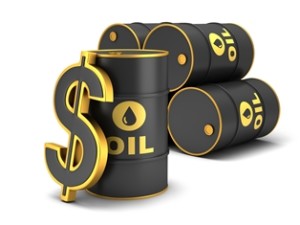
Crude oil extended gains on Wednesday, rising more than $1 on a reported decline in U.S. crude inventories and after sources signalled top exporter Saudi Arabia wants to see the crude price closer to $100 a barrel.
Top oil exporter Saudi Arabia would be happy for crude to rise to $80 or even $100, three industry sources said, a sign Riyadh will seek no changes to a supply-cutting deal even though the agreement’s original target is within sight.
Brent crude futures were up $1.17 at $72.75 by 1418 GMT, while U.S. WTI crude futures gained $1.30 to $67.82, having hit their highest since late 2014 at $68.08.
“OPEC headlines have also been constructive in tone,” Goldman Sachs said in a daily note.
“Yesterday evening saw the API report a surprising decrease in U.S. crude oil stocks and a reduction in oil product stocks that was sharper than anticipated,” Commerzbank oil analyst, Carsten Fritsch, said in a note.
U.S. crude inventories fell by 1 million barrels last week to 428 million barrels, the American Petroleum Institute (API) said.
OPEC’s ministerial committee tasked with monitoring the group’s supply-cutting deal with non-OPEC countries, led by Russia, meets in the Saudi city of Jeddah on Friday.
The Organization of the Petroleum Exporting Countries and 10 rival producers have restrained output by a joint 1.8 million barrels per day since January 2017 and pledged to do so until the end of this year.
“Despite an oil price of over $70 per barrel and the fact that the oversupply has been eliminated, a phase-out of the production cuts will not be on the agenda,” Fritsch said.
Oil has been supported by the perception among investors that tensions in the Middle East could lead to supply disruptions, including renewed U.S. sanctions against Iran, as well as falling output in crisis-hit Venezuela.
Dutch bank ING said in a note to clients that Brent had risen back above $70 in April “due to geopolitical risks along with some fundamentally bullish developments in the market”.
It raised its average 2018 price forecast for Brent to $66.50 a barrel from $60.25, and its 2018 WTI forecast to $62.50 from $57.75.
For next year, however, ING expects lower prices due to rising U.S. crude output, which has jumped by a quarter since mid-2016.
Official weekly data on U.S. inventory levels will be published by the Energy Information Administration on Wednesday.
“I see the risk of further upside potential (for the oil price) but in that case, the risk of a serious pullback does become bigger,” ABN Amro Chief Oil Economist, Hans van Cleef said.
Agency Report